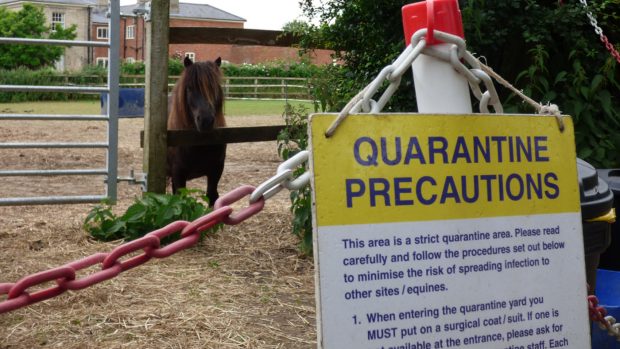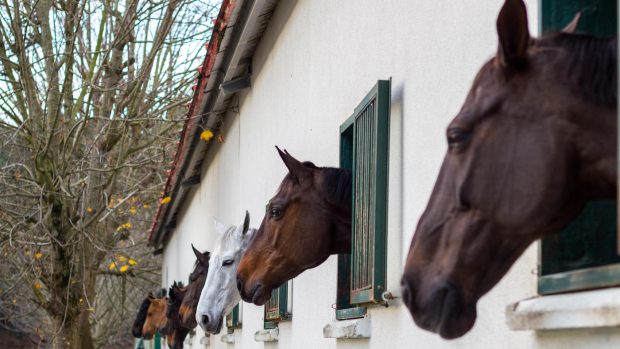Several cases of strangles have been confirmed in Ceredigion and other parts of Wales.
Strangles, a bacterial infection of the equine lymph gland, which results in a restriction of the horse’s airway, is highly infectious spreading through direct contact with infected mucus.
Richard Davies, partner of the Fenton Veterinary Group in Haverfordwest, says: “At the moment it seems to be under control. People shouldn’t panic but should be aware of what symptoms to look out for. If they suspect their horse may have strangles they should contact their vet.”
The BHS advises that anyone coming into contact with infected animals should change their clothes and footwear, and preferably take a shower, before handling uninfected animals.
BHS acting head of welfare, Helen Owens, adds: “Strangles can be very distressing for the animal and owner. The disease is highly contagious, therefore owners and carers should be extra vigilant and carry out good hygiene practices to help prevent this disease from spreading.”
Treatment of strangles tends to suppress rather than eliminate symptoms, so horses will not usually receive actual treatment. Infected animals require careful supervision, and their food and water intake must be closely monitored.
Although it is rare for an adult horse to die as a result of strangles, it can be fatal in foals, which do not have fully developed immune systems.
Click here for more information about strangles.
- Don’t miss this week’s issue of Horse & Hound (11 September) for an in-depth veterinary report on the development of a strangles vaccine.




